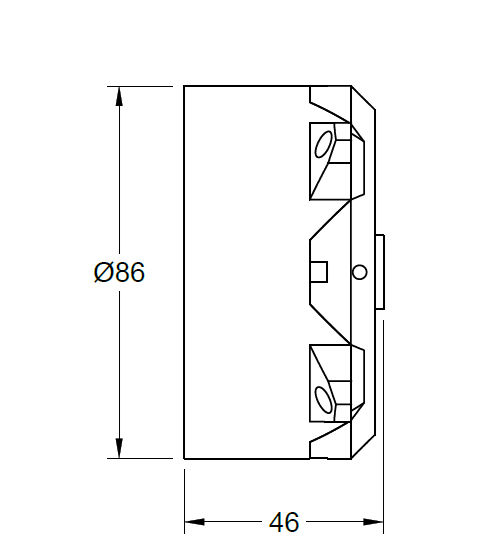6-DOF Robotic Arm
Personal Project
Summary :
The 6-DOF Robotic Arm is a mechanically optimized, fully actuated robotic manipulator designed for precision pick-and-place operations and automation tasks. Built with cycloidal and planetary gear systems, the arm delivers high torque, minimal backlash, and smooth motion control. It integrates closed-loop stepper motors for precise actuation and features a modular end-effector system for tool interchangeability.
Powered by Arduino for low-level control and Raspberry Pi running ROS2 for high-level motion planning, this project explores kinematics, automation, and computer vision for real-time object detection and manipulation.
Project Overview

What?
-
Design a 6 Degree-of-freedom robotic arm or pick and place operations.
-
Integrate computer vision and object detection.
-
Implement ROS2 operating software and peripheral communication thru Rasberry Pi SBC.

How?
-
Designed in Fusion360 and optimized for manufacturability.
-
Cyclodal gear box drives the Z-axis (Joints 1 &2), designed to be 3d printed in any printer.
-
Split-Ring Planetary gearbox drives joint 4 to allow for yaw around the forearm in a compact form.
-
Utilizes Closed-Loop stepper control, with readily available parts.

Results
-
Currently in Design stage of the wrist and gripper.
-
Personal project began as a incentive for my younger cousin interested in engineering, who is currently a freshman at LA city College.
-
This project was a learning experience to adventure into other CAD software, Fusion360.
Mechanism Design & Control
Cycloidal Gearbox
-
Reduction Ratio: 24:1 (One output rotation per 24 input rotations).
-
Design: 25 stationary pins, 24-lobe cycloidal discs, and three-disc configuration for enhanced load distribution.
-
Operation: An eccentric cam drives the discs, engaging stationary pins to convert high-speed, low-torque input into low-speed, high-torque output with minimal backlash.
-
Multi-Disc Benefits:
-
Balanced Load & Durability – Reduces wear and increases lifespan.
-
Smooth Motion – Minimizes vibration, improving precision.
-
Higher Torque Capacity – Handles greater loads efficiently.
-
-
Application: It is used in the shoulder and forearm joints to allow for pitch movement and control.
A-Axis SubAssembly
-
It is used in the forearm of the robotic arm and encases a Cycloidal Gearbox and provides an attachment for the roll movement in the arm using a Split-Ring Compound Planetary gearbox
Split-Ring Compound Planetary Gearbox
-
Reduction Ratio: 1:40 (One output rotation per 40 input rotations).
-
Design: Utilizes a split-ring mechanism, where one ring gear is fixed and the other acts as the output, combined with compound planetary gears for enhanced torque transmission.
-
Operation:
-
The sun gear drives compound planet gears, which engage both the fixed and floating ring gears.
-
This multi-stage interaction achieves high reduction in a single compact stage.
-
-
Key Advantages:
-
High Reduction Efficiency – Achieves 40:1 reduction in one stage, reducing the need for additional gear sets.
-
Compact & Lightweight – More space-efficient than traditional multi-stage planetary systems.
-
Minimal Backlash – The floating ring gear improves gear meshing accuracy.
-
High Torque Output – Evenly distributes forces for durability and smooth operation.
-
Base SubAssembly (Yaw)
1A. Z-Axis Linear Rail:
-
Design: The base of the robotic arm is designed with careful consderation of being fully 3D printed with key componets in stress points.
-
3D printed design techniques to avoid overhangs and print with optimal layer adhesion were considered during the deisgn.
-
625-2RS ball bearings placed radially to the load allow for smooth operation
-
Pulley Base system allow for the yaw control of the robotic arm, with a reduction ratio of 13.5:1
-
-
Operation:
-
A NEMA 23 stepper- Base Pulley rotates the robotic arm base to control the yaw.
-
A fan provides necesary cooling in the stepper enclosure that holds the electronics of the robotic arm
-
-
Key advantages:
-
Belt driven system allows for precise control with minimal backlash
-
Higher Torque at output pulley to handle the load of the robotic and pick and place operations
-














